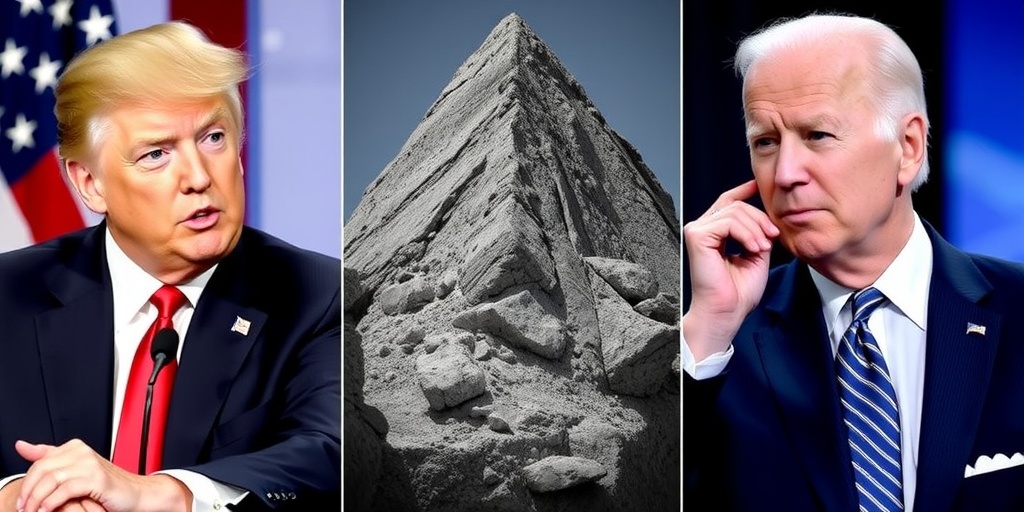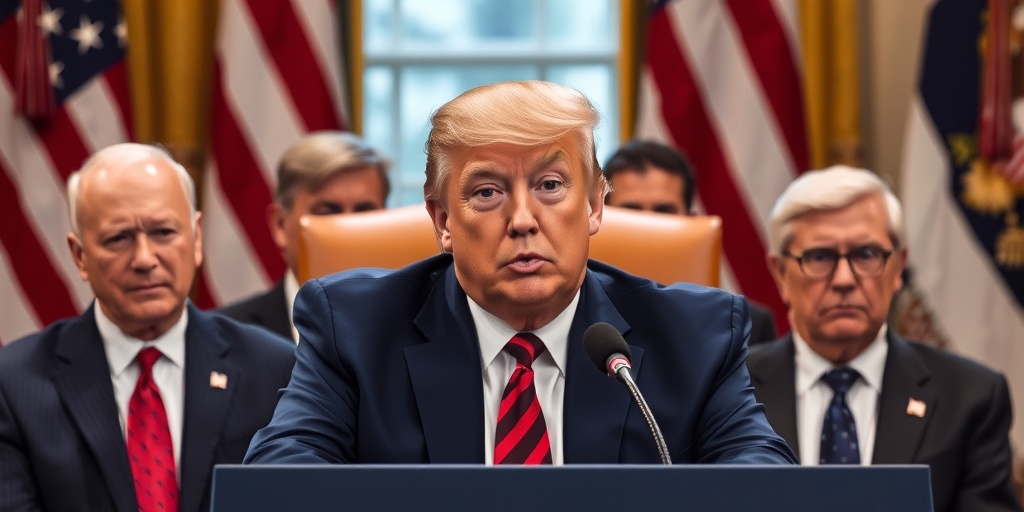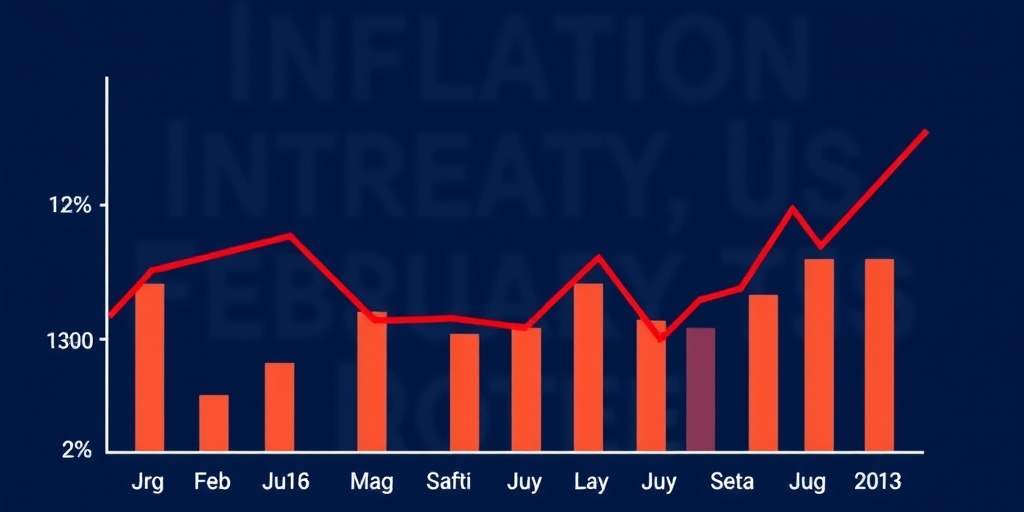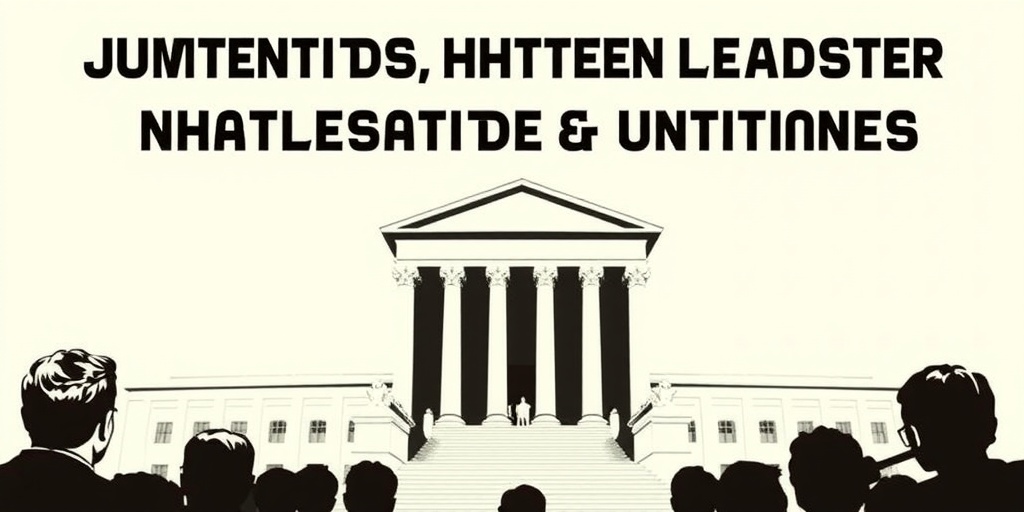Now Reading: Trump and Biden’s Strategies for Securing Critical Minerals in Ukraine, Greenland, and Beyond
-
01
Trump and Biden’s Strategies for Securing Critical Minerals in Ukraine, Greenland, and Beyond
Trump and Biden’s Strategies for Securing Critical Minerals in Ukraine, Greenland, and Beyond

Title: Trump’s Strategic Push for Ukraine’s Critical Minerals Sparks Controversy
In a surprising turn of events, President Donald Trump has demonstrated a keen interest in Ukraine’s vast mineral resources, which has drawn sharp criticism and raised eyebrows among political analysts and observers. Trump’s engagement began when he sent his Treasury Secretary to Kyiv earlier this month to negotiate with Ukrainian President Volodymyr Zelensky. Critics have likened Trump’s aggressive stance to that of a “Mafia don,” suspecting it to be an extortion scheme aimed at gaining control over Ukraine’s critical minerals. “I want security of the rare earth,” Trump reportedly stated, underscoring his administration’s focus on the strategic importance of these resources.
The significance of critical minerals is not a new revelation for Trump. As early as 2017, the former president signed an executive order prioritizing critical minerals during his initial term in office. This focus has continued into his recent presidency, as he highlighted the potential for seizing mineral wealth overseas. Trump’s ambitions extend beyond Ukraine, as he has previously expressed interest in acquiring mineral resources in Greenland and Canada. Canadian Prime Minister Justin Trudeau even remarked that Trump’s fixation on Canada’s minerals suggested serious intentions of annexation.
Seizing mineral wealth has now become a cornerstone of Trump’s foreign policy, reflecting a more imperialistic approach. The president’s fixation mirrors the motivations of historical empires, where resource extraction prompted territorial expansion. Recently, U.S. and Ukrainian officials reached an agreement outlining a framework for sharing revenue from Ukraine’s minerals after weeks of challenging negotiations.
Critical minerals—essential nonfuel resources vital for energy technologies—are at high risk of supply-chain disruptions. According to the U.S. Energy Department, these minerals are found around the world, notably in countries like Chile, Argentina, and the Democratic Republic of Congo. They are integral to technologies ranging from electric vehicle batteries to missile systems.
Recognizing the critical nature of these resources, President Biden also prioritized securing mineral supply chains during his administration. His last overseas trip involved promoting a U.S.-backed railway in Angola that would facilitate the transport of critical minerals. Additionally, Biden’s administration established a collaborative framework with allied nations to bolster supply chains for critical minerals, aiming to reduce reliance on China, which has dominated the mineral production landscape.
However, this cooperative approach contrasts sharply with Trump’s tactics, which some experts view as coercive rather than collaborative. Jose W. Fernandez, a former official in the Biden administration responsible for the State Department’s initiatives on critical minerals, stated, “These are countries that want investment. But they want partnerships. They are not looking for a colonial relationship.” This sentiment reflects the necessity of mutual respect in engagements with resource-rich nations, as they often view their natural wealth as integral to their sovereignty and economic independence.
Despite the international interest in Ukraine’s resources, past attempts at formal agreements between Ukraine and the U.S. have faltered. In September 2022, Zelensky introduced a “victory plan” to allied nations, including partnerships on critical minerals, yet subsequent negotiations have faced hurdles. Initial attempts to finalize an agreement were disrupted, raising questions about Ukraine’s readiness to align with Trump’s more extractive approach.
Trump’s recent proposal for Ukraine demanded 50% of its natural resource revenues in response to the immense financial and military support provided by the U.S. Critics described these terms as exploitative and indicative of a colonial mentality. Although U.S. officials have since moderated their demands, pressure remains on Ukrainian negotiators to formalize agreements.
China’s strategic position as a dominant player in the critical minerals market adds another layer of complexity. According to a Center for Strategic and International Studies report, the U.S. imports a significant proportion of its critical minerals from abroad, with China as the primary supplier. The report further outlines how China has leveraged its control over these resources, implementing export restrictions and bans that have heightened U.S. concerns.
In the context of evolving global dynamics, some foreign leaders have tried to garner support for mineral extraction initiatives in their countries. For instance, Ashraf Ghani, the former president of Afghanistan, attempted to highlight Afghanistan’s mineral wealth in a bid to secure continued U.S. military presence during a tumultuous period.
The U.S. government’s ongoing fixation on securing critical minerals has deepened amid anxieties around supply chain vulnerabilities exacerbated by the COVID-19 pandemic. Both the Trump and Biden administrations issued executive orders to address reliance on foreign powers for these essential materials.
As negotiations regarding Ukraine’s mineral wealth progress, the delicate balance between resource acquisition and respect for national sovereignty remains at the forefront of diplomatic discussions. Abundant minerals can advance technological innovation and energy independence, but the need for ethical partnerships among nations will invariably shape the trajectory of international relations in this critical sector. The question now becomes whether Trump’s approach—focused on extraction—will align with the sustainable investment requirements of countries rich in resources like Ukraine.
Stay Informed With the Latest & Most Important News
Previous Post
Next Post
-
 01New technology breakthrough has everyone talking right now
01New technology breakthrough has everyone talking right now -
 02Unbelievable life hack everyone needs to try today
02Unbelievable life hack everyone needs to try today -
 03Fascinating discovery found buried deep beneath the ocean
03Fascinating discovery found buried deep beneath the ocean -
 04Man invents genius device that solves everyday problems
04Man invents genius device that solves everyday problems -
 05Shocking discovery that changes what we know forever
05Shocking discovery that changes what we know forever -
 06Internet goes wild over celebrity’s unexpected fashion choice
06Internet goes wild over celebrity’s unexpected fashion choice -
 07Rare animal sighting stuns scientists and wildlife lovers
07Rare animal sighting stuns scientists and wildlife lovers





















